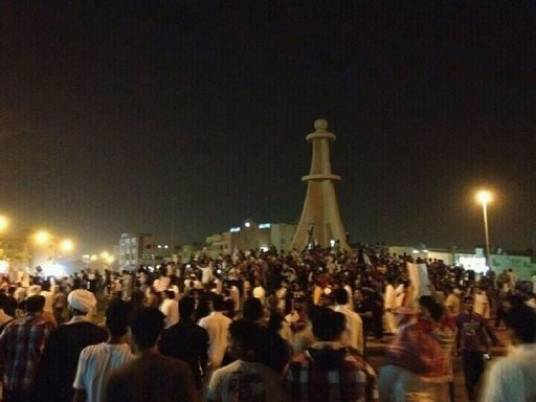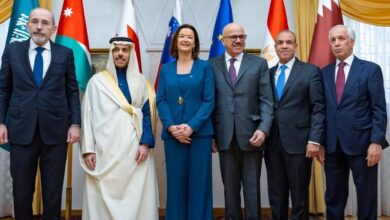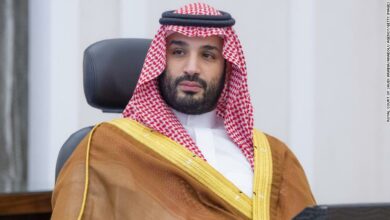
Gunmen shot and wounded a Saudi policeman in the eastern part of the kingdom, state news agency SPA reported late on Tuesday, in an attack that highlights the volatile situation in the area ahead of the annual Muslim haj pilgrimage.
The attack came days after the fatal shooting of a Shia activist in the same town in Eastern Province, which is home to a large number of the country's Shi'ite Muslim minority and has seen protests against the Sunni Muslim al-Saud ruling family.
The policeman, Mohammed Atiq al-Jehani, was shot and wounded by unknown assailants while stationed at a checkpoint at the entrance to the restive town of al-Awamiya late on Monday night, Saudi-owned al-Sharq al-Awsat reported.
Saudi Interior Minister Prince Mohammed bin Nayef later visited Jehani at a police hospital in the capital Riyadh, SPA said.
On Monday, authorities announced that Bassem Ali al-Qudaihi, an activist sought by security forces for involvement in gun attacks and protests in recent years, had died during an exchange of fire with police trying to arrest him in Awamiya.
Residents of Qudaihi's native village of Tarout gave him a public funeral on Tuesday night, where mourners waving placards that denounced the ruling al-Saud family packed the narrow streets, according to footage posted on YouTube.
"Our blood will be victorious against your bullets and lies," one banner read.
The shootings came as more than two million Muslims converge on the Muslim holy city of Mecca from all over the world for the haj pilgrimage, which officially starts on Friday.
Interior Ministry spokesman General Mansour al-Turki said on Saturday Qudaihi was a dangerous man, though he had not been on a list of 23 Shi'ite Muslims it published in 2012 as being wanted for involvement in anti-government violence.
Saudi Arabia has accused the wanted men of serving the agenda of a foreign power, usually a reference to its Shia rival Iran, which Riyadh sees as fomenting sectarian unrest.
Iran denies it interferes in the internal affairs of the Gulf Arab states.
Saudi Shia complain of widespread discrimination, which they say prevents them from gaining good government jobs, reduces state investment in their neighborhoods and leads to closures of Shia centers of worship.
The Saudi government denies charges of discrimination.




